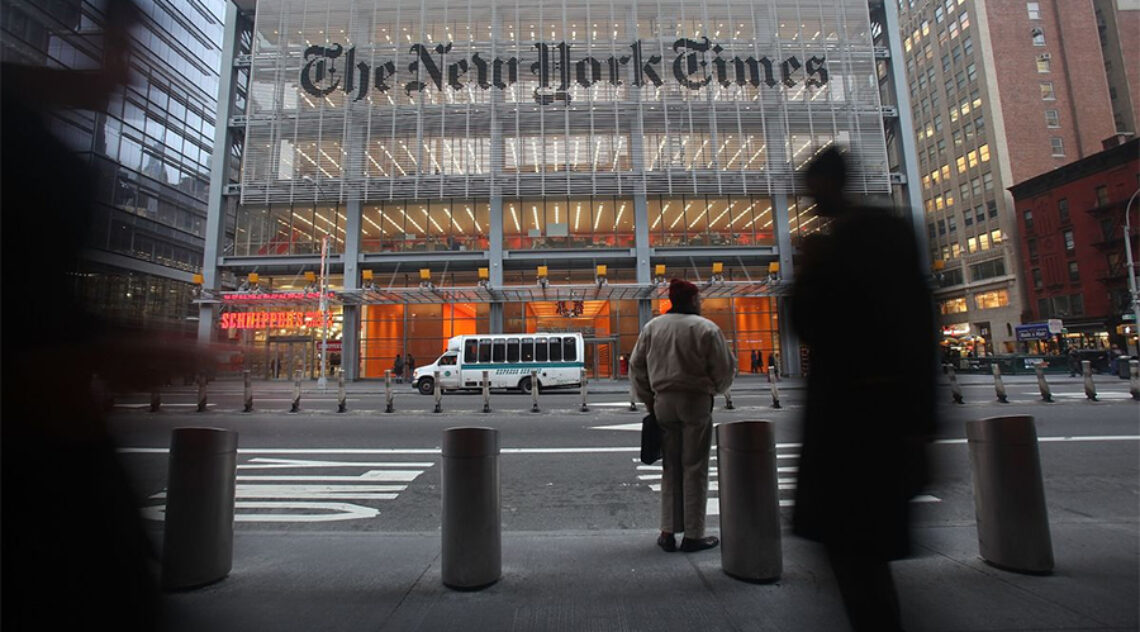
In the lawsuit it filed just after Christmas against OpenAI and Microsoft for copyright violations, The New York Times said it tried to strike a deal with the companies over their use of its content in their generative AI tools but the effort came to nothing.
“The Times reached out to Microsoft and OpenAI in April 2023 to raise intellectual property concerns and explore the possibility of an amicable resolution,” The Times said. “These efforts have not produced a resolution.”
That resolution might come now, thanks to the lawsuit, Cory Weinberg, deputy bureau chief of The Information, thinks.
“You should view this for what it is,” the tech commentator said in The Briefing newsletter. “A negotiating tactic. It would be far too risky for The Times to go to trial over how the fair use doctrine — which allows limited use of copyrighted material — applies to artificial intelligence models.”
It’s not even clear copyright law is the best law to apply to address content producers’ concerns about the use of their work, James Grimmelmann, professor of digital and information law at Cornell, told Axios. The issue is too big for that. It’s a societal issue that needs a policy solution.
“Copyright law is not really the way to worry about the big societal effects” of AI, Grimmelmann told Axios. “We shouldn’t be using copyright law as labor policy to figure out the role of humans in a world of automation. We shouldn’t be using copyright law to protect privacy or to protect against dangerous content. A copyright was not built for that.”
Absent a policy solution, Grimmelmann said, companies that can use their clout as leverage will work out deals that others can’t, slanting the technology in their favor.
“If copyright law says that some kinds of AI models are legal and others aren’t, it will steer innovation down a path determined not by what uses of AI are beneficial to society but one based on irrelevant technical details of the training process,” Grimmelmann said.
Flurry of lawsuits
The Times lawsuit is the latest of several targeting OpenAI, which makes several versions of the natural-language AI tool ChatGPT, and Microsoft, OpenAI’s biggest investor and also one of the builders of the ChatGPT infrastructure.
The companies are defendants in more than one class action lawsuit brought by authors and others who say their creative work, or their personal information, has been appropriated without permission to train the AI tools. And the Federal Trade Commission has launched an investigation looking into how the companies access the data they use to train the tools. Governments in Canada, Australia, Italy, France and Spain have their own investigations going as well.
Content compensation
In The Times’ case, the news company says it makes big outlays to do the quality journalism that OpenAI and Microsoft rely on to train their tools but gets nothing in return.
“Defendants engaged in widescale copying from many sources, [but] they gave Times content particular emphasis when building their large language models — revealing a preference that recognizes the value of those works,” The Times said.
The complaint includes side-by-side comparisons of original Times content and the responses that ChatGPT generates to answer user queries. The two sides are mostly identical, supporting The Times’ argument that it’s losing revenue because users have no incentive to go to the original source when they can get the same thing for free using the tool.
“Defendants seek to free-ride on The Times’s massive investment in its journalism by using it to build substitutive products without permission or payment,” the complaint says.
The Times is also worried about the reputational risk posed by the AI hallucinations that continue to bedevil the tools, citing instances in which ChatGPT tools inserted invented content into summaries of Times content.
Partnership model
Deals worked out between OpenAI and other media companies, including the Associated Press and Axel Springer, the big German publisher that owns Politico and Business Insider, don’t appear to be what The Times is looking for.
Based on what the companies have disclosed about the terms, the deals aren’t about licensing revenue but getting ChatPGT tools and support into the publishers’ hands for their own use and ensuring their content is credited, with links, in ChatGPT answers to queries.
“The partnership supports Axel Springer’s existing AI-driven ventures that build upon OpenAI’s technology,” Axel Springer said. “The collaboration also involves the use of quality content from Axel Springer media brands for advancing the training of OpenAI’s sophisticated large language models.”
“AP will leverage OpenAI’s technology and product expertise,” AP said when announcing its deal.
Other publishing companies have passed on that kind of partnership. Reuters, BBC and CNN are among companies that have taken steps to block OpenAI’s web crawler from scraping their content.
In his analysis, Weinberg says the timing of The Times’ lawsuit probably isn’t accidental. It’s a slow news period and OpenAI is under the spotlight from the high-profile firing, and then re-hiring, of its CEO, Sam Altman, in November. That makes this a good time to go after them.
“They’re vulnerable to public relations pressure,” Weinberg says. “Expect this latest tech battle to play out in the court of public opinion as executives haggle over deal terms behind the scenes.”